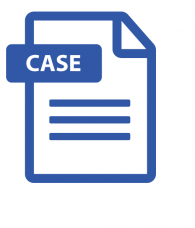We use cookies to make your experience better. To comply with the new e-Privacy directive, we need to ask for your consent to set the cookies. Learn more.
Mihir is the head of the Disaster Management Department for the fictional coastal state of Udan, in South India. He receives a weather bulletin from the Indian Metrological Department (IMD) about "Ichko," a cyclone that has suddenly changed course and is set to make landfall in the southernmost district of Iramuk in the next 24 hours. Mihir's department typically received early warning of such events, making it possible to mobilize the official machinery to mitigate the damage caused by the cyclone through a series of measures before, during and after the cyclone. In this case, with very little time on hand, Mihir has to work with Kiran, the district collector of Iramuk, to handle the complex crisis that threatens loss of life and widespread damage. The situation is complicated by the urgent need to alert a large number of fishermen who are at sea and beyond the reach of any communication channels. On the ground, other issues at the community and political level are making for an explosive situation: What if the fishermen lose their lives, and the government is seen as not having done enough?
Learning Objective
The case can be used to teach crisis management during disasters and explore the often complex interplay of local situations that impinge on and hinder disaster response. The case talks about the need for (a) multi-stakeholder responses to managing disaster risks; and (b) a thorough prior understanding of the situation to enable an adequate and timely response. It discusses how unrelated and pre-existing issues could affect disaster responsiveness.

